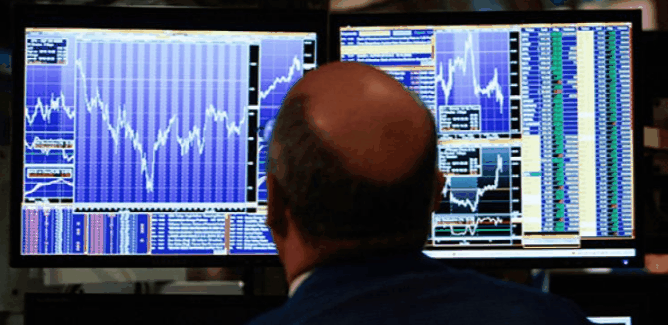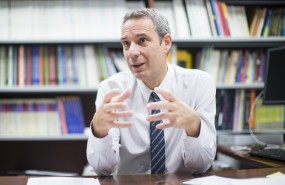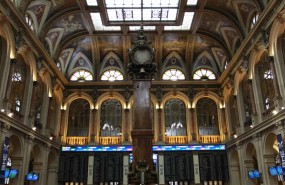- Throughout these five days, business results will continue to be published, Enagás and Ibedrola will be the first
- The Ibex aims at 10,900 in the short term, but experts do not rule out a previous correction

The red numbers have been imposed on European exchanges this week. The Ibex has closed down 0.04%, although it resists above 10,650 points, similar to that of other places in the Old Continent, with the exception of London's FTSE 100 which has risen 0.35%.
- 11.154,600
- 1,56%
Gas Natural (-3,1%) and the two most important banks of the Ibex, Santander (-1,04%) and BBVA (-0,59%), have been the worst companys in the selective. In the other hand, Indra (+2,87%), DIA (+1,81%) and Melia Hotels (+1,63%) have been the best values. Deutsche Bank estimates a 13% drop in Gas Natural's profits in the first half, while Jefferies analysts recommend 'keeping' DIA and giving it a potential upside of 5%.
According to data collected by FactSet, 25 of the 35 companies in the index - 70% - have seen analysts now expect a profit for 2017 higher than they predicted by the end of 2016, according to Bolsamanía. The "stress" of the Spanish financial market is small, according to the CNMV's indicator that put it in June at 0.19 points. This figure is lower than that recorded at the end of April which was at 0.21 points. When the indicator exceeds 0.27 points, the level of 'stress' is medium and if you pass the 0.49 is high. In addition the regulator points out that the resolution of Banco Popular did not affect the 'stress' of the Spanish financial market.
This week has the main catalyst with the appearance of the president of the European Central Bank (ECB), Mario Draghi, that will take place this Thursday within the framework of the type meeting. Europe moves towards monetary normalization, just like the United States, and it is expected that the italian man to focus his words in that direction. Janet Yellen, who spoke last week before the American Congress and Senate, got her speech, also aimed at monetary normalization, to encourage the stock markets. The question is whether Draghi will do the same.
In addition, as last week, the other catalyst for markets over these five days will come hand in hand with business results. Accounts will continue to be known on both sides of the Atlantic, and here in Spain, the season of second quarter figures will start with Enagás on Tuesday and Iberdola on Thursday.
The Brexit will be another of the protagonists of this week in the framework of the resumption of negotiations between the United Kingdom and the European Union (EU). Brexit's British secretary David Davis will resume talks with MEP Michel Barnier in Brussels on Monday. Negotiators are expected to split into groups to discuss four areas ahead of a scheduled press conference on Thursday.
In the business world, the British chain ITV announced Monday that Carolyn McCall will become its new executive director. McCall, who has served as executive director of easyJet for seven years, will take up her new position at the UK's largest free-to-air commercial broadcasting chain on 8 January next year.
Meanwhile, China has reported stronger-than-expected data on economic growth on Monday. The Chinese economy grew 6.9% year-on-year in the second quarter. Meanwhile, in the United States, data released this past Friday showed consumer prices remained unchanged in June and retail sales fell for the second consecutive month. The data are likely to dampen expectations for strong economic growth in the second quarter. The chances of a Fed interest rate hike in December fell to around 43% on Friday, according to CME's Fedwatch tool.
On Monday's macro agenda, euro zone inflation was 1.3% in June, one tenth lower than the reading for May and in line with expectations. As for the euro falls 0.02% against the dollar, to $ 1.1467, while oil trades with slight drops of 0.09%, in the case of the barrel of Brent and West Texas is left a 0 , 06%.




